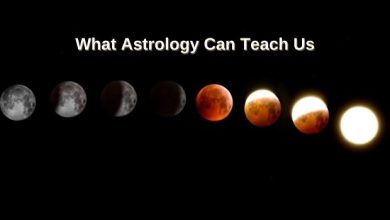New Worldwide Trends: Waste Management

The old saying: ‘Waste not, want not’ rings true as leaders globally and locally look for a fix to the problem of waste management.
The increase of urbanization has led to a new set of challenges one such challenge is waste management. The increase in disposable income of consumers, change in food habits, lifestyle, and growth in urbanization has resulted in the increasing volume of disposing of usable products.
This, in turn, increases waste disposal at an individual level.
Air, soil and water pollution have increased in recent years due to unplanned waste management and dumping. A growing awareness of environmental pollution has led to a need for efficient waste management and disposal.
The Global Waste Management Industry: New Trends
Merger and Acquisitions:
Acquisitions and mergers contribute to the growth of the waste management industry. However, this often results in confusion among clients as many mergers fail. Furthermore, it causes an increase in prices because of equipment, staff, and system changes.
In December 2019, Waste Connections announced the closure of the acquisition. In addition to the new market entry into solid waste collection and recycling in South Central Pennsylvania and tuck-in acquisitions in New York, Illinois, Tennessee, and Alaska.
In October 2020: Waste Management Incorporated acquired Advanced Disposal Services. In addition, the acquisition will enable Waste Management to serve an additional 3 million residential, commercial, and industrial customers with excellent waste management and recycling services.
In March 2021: Veolia made a partnership with Groupe Renault, a key player in automobile manufacturing. It will allow a circular economy of E.V. battery metals in Europe through closed-loop recycling.
In May 2021: SUEZ and Eramet have signed a contract expanding their efforts in electric vehicle battery recycling. In Europe, the partnership will offer high-performance, competitive, and renewable battery recycling solutions.
Application of Zero Waste Programs and Legislation:
Zero Waste is a waste management technique that focuses on the usage of products in such a way that all the waste gets reused. The goal is to send no trash to landfills, oceans, or incinerators. 97 cities worldwide have signed a declaration to shift towards zero waste.
In 2003, a village in Japan called Kamikatsu declared itself to be waste-free. The garbage sorting process separates items made of different materials. The recycling center also washes it before sending it.
Taiwan’s waste recycling rate increased 50 percent since 2003 when it declared zero waste. Single-use plastics and disposable chopsticks have decreased in the country. Around 75% of food waste goes to farms to be composted and fed to animals.
It has been a goal to reduce waste and compost in Flanders, Belgium, since the early 1980s. By 2000, Flanders achieved a 60% recycling rate and diverted 75% of the food waste from landfills until today.
Thiruvananthapuram, India, got rid of its only landfill after mismanagement in 2011. Waste collection in the municipality included separation, composting, and resource recovery. About 80% of the waste generated was organic. City officials banned single-use plastics from public events and funded composting and biodigester facilities for the general public.
Waste Management Technology Advances:
As new technology is getting developed, there have been new innovations in trash recycling technology. According to Astute Analytica, the global waste management market is growing at a CAGR of 5.5% during the forecast period of 2020-2027.
Casella Waste Systems financed researchers from the University of Vermont to test a new de-packaging system developed by the company. It separates food waste from packaging material and studies whether the food waste separated from packaging material is good enough to be turned into compost. The composting of food waste also results in the generation of biogas, which is a clean source of renewable energy.
Bigbelly developed a solar-powered waste container with an internal compactor that can hold up to 8 times more waste than a standard container. The bin also has internal sensors that track the volume of waste. In addition, it sends emails to the central collection center when the bin gets full. This helps in reducing collections, reduce fuel costs and CO2 emissions from the truck requirement.
Sutera developed a semi-underground waste recycling container. It decreases the growth of germs, keeps the waste out of reach from rats and other pests. In addition, it reduces bad odor from the waste.
Read about: How to Perform Data Analytics? A Step-By-Step Guide






